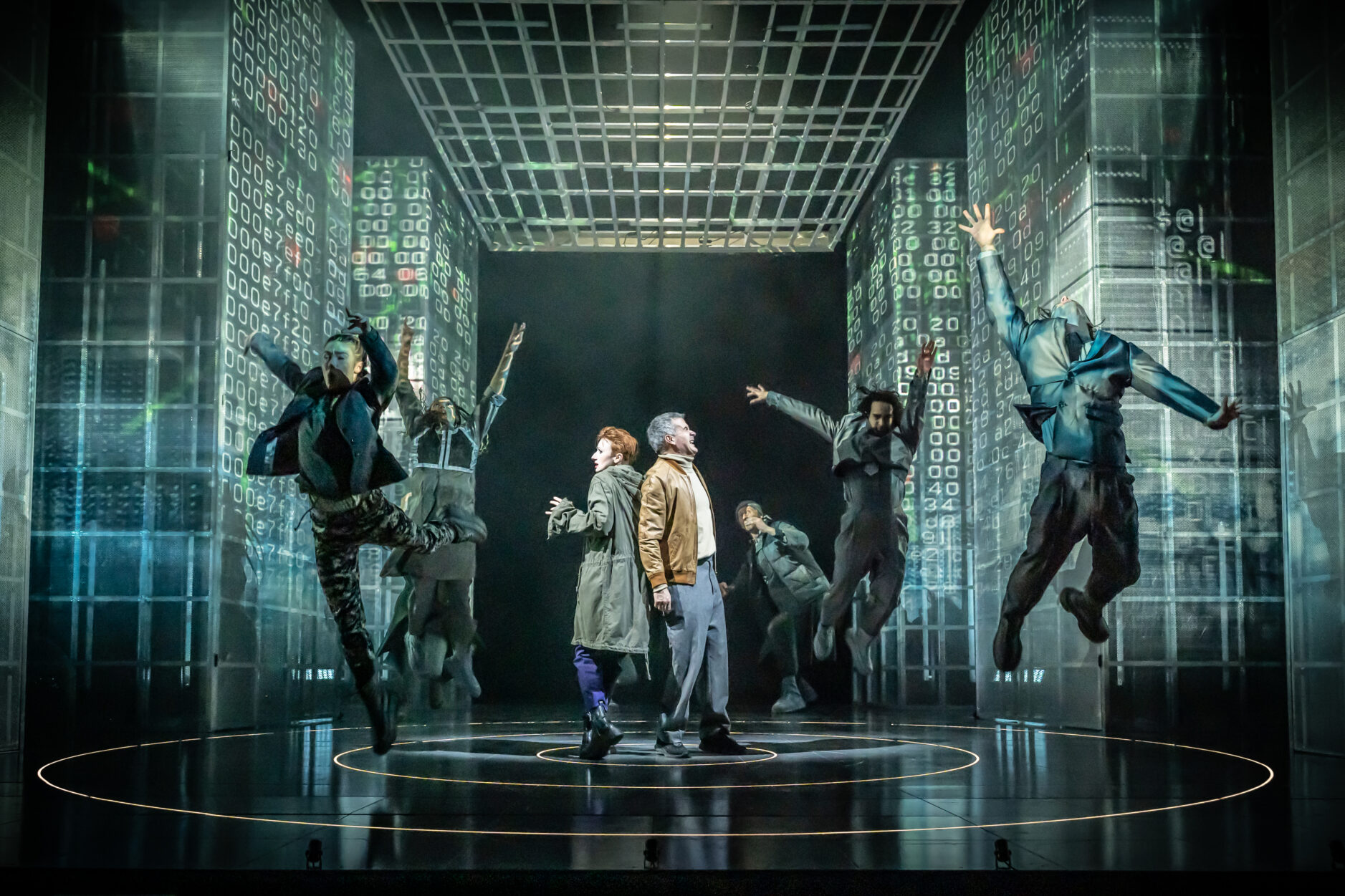"Minority Report" (2002) Review: Exploring the Ethics of Pre-crime in a Dystopian Future
Introduction:
"Minority Report," directed by Steven Spielberg and based on a short story by Philip K. Dick, is a gripping sci-fi thriller that delves into the moral complexities of predictive policing in a futuristic society. Released in 2002, the film remains relevant in its exploration of surveillance, free will, and the potential consequences of technology on civil liberties. With a stellar cast led by Tom Cruise, "Minority Report" combines thought-provoking themes with exhilarating action sequences, resulting in a film that challenges audiences to reconsider their views on justice and accountability.
Plot Summary:
Set in the year 2054 in Washington, D.C., "Minority Report" presents a world where crime has been virtually eliminated thanks to the implementation of PreCrime, a law enforcement agency that uses psychic abilities to predict and prevent murders before they occur. The system relies on the visions of "precogs," individuals with the ability to see into the future, who identify potential perpetrators and victims. John Anderton (Tom Cruise) is the head of PreCrime, dedicated to upholding its mission despite the personal tragedy that led him to join the agency.
However, when the precogs predict that Anderton himself will commit a murder in the near future, he becomes a fugitive, forced to evade his own colleagues while unraveling a conspiracy that threatens to undermine the entire PreCrime system. Along the way, Anderton encounters Agatha (Samantha Morton), one of the precogs, whose insights into his future raise profound questions about the nature of fate and free will.
Themes:
At its core, "Minority Report" grapples with the ethical implications of using technology to predict and prevent crime. The film raises fundamental questions about the nature of justice and the extent to which individuals should be held accountable for crimes they have yet to commit. By envisioning a society where law enforcement operates on the basis of preemption rather than response, "Minority Report" forces audiences to confront the potential dangers of sacrificing civil liberties in the name of security.
Additionally, the film explores themes of determinism versus free will, as Anderton's struggle to change his predicted future calls into question whether destiny can be altered or if certain events are inevitable. Through his interactions with Agatha and the other precogs, Anderton comes to realize the limitations of human knowledge and the complexities of navigating a world where the future is not predetermined.
Cinematic Elements: From a cinematic standpoint, "Minority Report" is a masterclass in visual storytelling. Steven Spielberg's direction imbues the film with a sense of urgency and suspense, keeping audiences on the edge of their seats from start to finish. The film's futuristic setting is brought to life through stunning production design and special effects, creating a vivid and immersive world that feels both familiar and unsettlingly plausible.
From a cinematic standpoint, "Minority Report" is a masterclass in visual storytelling. Steven Spielberg's direction imbues the film with a sense of urgency and suspense, keeping audiences on the edge of their seats from start to finish. The film's futuristic setting is brought to life through stunning production design and special effects, creating a vivid and immersive world that feels both familiar and unsettlingly plausible.
Tom Cruise delivers a compelling performance as John Anderton, capturing both the character's determination and vulnerability as he grapples with his own fate. Samantha Morton shines as Agatha, conveying a sense of otherworldly wisdom and innocence that adds depth to her character. The supporting cast, including Colin Farrell as a skeptical FBI agent and Max von Sydow as the enigmatic founder of PreCrime, further enhances the film's rich tapestry of characters and motivations.
Action sequences are expertly choreographed and executed, blending seamlessly with the film's thematic elements to create a truly immersive experience. From exhilarating chase scenes through crowded city streets to tense standoffs in shadowy alleyways, "Minority Report" keeps audiences on the edge of their seats with its pulse-pounding thrills and thought-provoking narrative.
Legacy:
Nearly two decades after its release, "Minority Report" remains a standout example of intelligent science fiction filmmaking. Its exploration of complex themes and moral dilemmas continues to resonate with audiences, prompting discussions about the role of technology in society and the importance of safeguarding individual freedoms. The film's visual style and innovative use of special effects have also left an indelible mark on the genre, inspiring countless filmmakers and artists to push the boundaries of storytelling through visual medium.
"Minority Report" is a thought-provoking and visually stunning sci-fi thriller that explores the moral complexities of predictive policing in a dystopian future. Through its compelling characters, gripping narrative, and thematic depth, the film challenges audiences to reconsider their assumptions about justice, free will, and the potential consequences of unchecked technological advancement. As relevant today as it was upon its release, "Minority Report" stands as a testament to the enduring power of speculative fiction to provoke discussion, inspire imagination, and shed light on the pressing issues of our time.
Character Development:
One of the strengths of "Minority Report" lies in its exploration of character development amidst the high-stakes narrative. Throughout the film, John Anderton undergoes a profound transformation as he confronts his own past traumas and grapples with the implications of the PreCrime system. Initially portrayed as a dedicated and unquestioning enforcer of the law, Anderton's faith in the system is shattered when he becomes its target. Forced to confront the limitations of his own beliefs, he embarks on a journey of self-discovery and redemption, ultimately seeking to reclaim his agency and determine his own fate.
Similarly, Agatha, the precog whose visions drive much of the plot, undergoes significant development as she forms a bond with Anderton and begins to question her role in the PreCrime program. Samantha Morton delivers a haunting performance, capturing Agatha's vulnerability and inner strength as she grapples with the burden of her psychic abilities. Through her interactions with Anderton, Agatha learns to embrace her humanity and assert her autonomy, ultimately playing a crucial role in exposing the corruption within the system.
Themes of Identity and Redemption:
At its core, "Minority Report" is a story about identity and redemption, as its characters struggle to reconcile their past actions with their present selves. For Anderton, the revelation of his impending crime forces him to confront the darkness within himself and seek redemption for his past mistakes. Through his journey, he learns that true redemption lies not in erasing the sins of the past, but in accepting them and striving to make amends.
Similarly, Agatha's journey towards self-discovery parallels Anderton's quest for redemption, as she grapples with the trauma of her past and seeks to forge a new identity outside of the confines of the PreCrime program. Her ability to see beyond the constraints of fate and envision a future of her own choosing serves as a powerful metaphor for the human capacity for growth and transformation.
Ethical Dilemmas and Societal Commentary:
"Minority Report" also raises important ethical dilemmas and offers insightful commentary on the nature of justice and the role of technology in society. The PreCrime system, while ostensibly designed to prevent crime and protect public safety, raises troubling questions about the erosion of civil liberties and the potential for abuse of power. By arresting individuals for crimes they have not yet committed, the system effectively punishes individuals for their thoughts and intentions, rather than their actions.
Moreover, the film's depiction of a surveillance state where privacy is virtually non-existent serves as a cautionary tale about the dangers of unchecked technological advancement. In a world where every move is monitored and every thought is scrutinized, individual autonomy becomes increasingly threatened, leading to a society devoid of genuine freedom and agency.
Conclusion:
In conclusion, "Minority Report" is a thought-provoking and visually stunning sci-fi thriller that explores complex themes of free will, determinism, and the ethics of law enforcement. Through its dynamic storytelling, compelling performances, and thought-provoking commentary, the film transcends the confines of its genre, offering a profound meditation on the nature of identity, redemption, and the human condition. More than two decades after its release, "Minority Report" remains a timeless classic that continues to captivate and challenge audiences with its visionary storytelling and thought-provoking themes.

























































